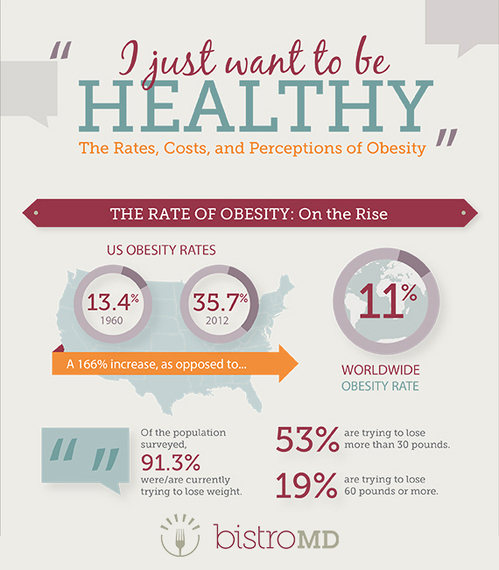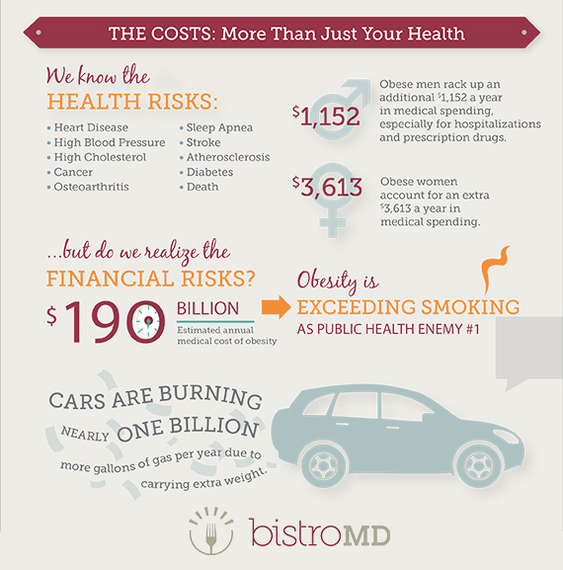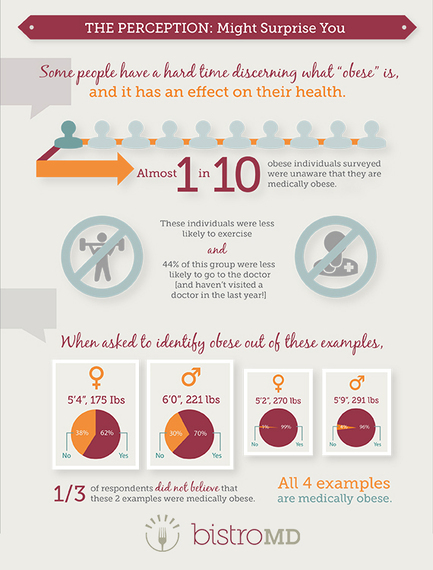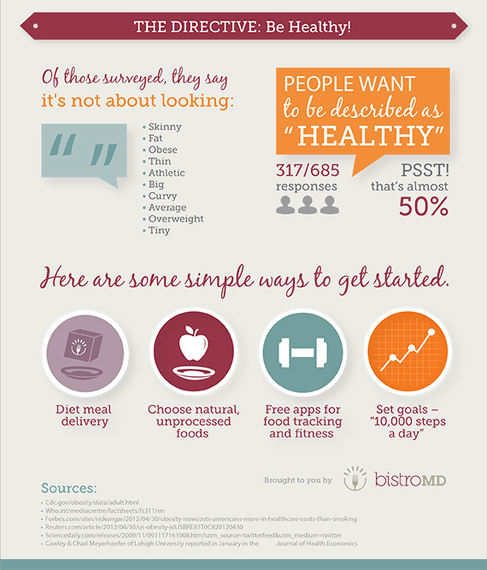From the CDC, the term obesity is a label for a range of weight that is greater than what is generally considered healthy for a given height. The World Health Organization's definition for obesity is a medical condition in which abnormal or excessive fat accumulation has occurred to the extent that it may have a negative effect on health. Regardless of the source, all reputable definitions of obesity include the warning that it can lead to reduced life expectancy and/or increased health problems.
Unfortunately, many people who are labeled obese, especially outside of a medical setting, develop a negative experience of self. This is partly due to the way that modern society has twisted the definition of obesity. People often associate the term with personal traits such as being lazy, sloppy, unintelligent, and none of these terms are, of course, in the medical definition. They are also completely unfair and unjust assumptions that lead to a diminished experience of self for those to whom the label is applied. I think that is why, in the graphic below, which was compiled from survey data, up to one-third of the respondents could not identify the first two test examples as obese, and why 10 percent of people who meet the medical definition of obese do not consider themselves to be.
Whether we believe it to be true or not, the simple reality is that each of us views ourselves in comparison to others. As our population gains more and more weight, our reference point for what is normal or average skews. The average American is overweight, and now one-third of us are obese. We seem to collectively understand that we have a weight problem, but we do not know what to do about it. At the time of our survey, 91.3 percent of participants stated that they were currently trying to lose weight. And it's not just about health -- losing weight has an economic impact as well.
While researching this topic, I was shocked to find that estimates place the annual medical cost of obesity at $190 billion and counting! Even more surprising is the fact that our cars burn an extraordinary amount of extra fuel carrying our excess weight -- nearly 1 billion gallons!
While it concerns me that one in 10 medically-obese individuals were not able to distinguish that they, themselves, were obese, it is encouraging that on the flip side, over 90 percent in this group were aware of their condition. But while some cases are easy to distinguish, others are less so. This is evidenced by the large numbers of survey participants who were unable to distinguish the two cases, out of a total of four hypothetical individuals whose height and weight classified them as medically obese, who were closer to the borderline. Take for example the 6-foot-tall, 221-pound man from the survey. While this may seem to be closer to "normal" for a man of this height, the medical reality is that his BMI of 30 classifies him as obese and thus at risk for obesity-related illness and complications.
When given the choice of what they'd like to be described as, our survey respondents overwhelmingly chose "healthy" over any other option. This is truly encouraging for a physician, like myself, who has devoted their practice to helping people pair the individual motivations that they need to lose weight with the science and knowledge of how to do so, once and for all.
For full infographic, click here.



